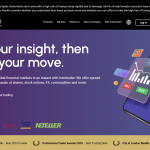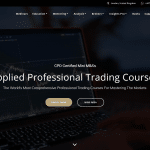As of mid-2025, many people are curious about how many forex brokers are there in the world. There are over 3,400 registered forex brokers worldwide, operating under a mix of regulatory regimes, business models, and geographic jurisdictions. The global forex brokerage industry has seen rapid growth due to increased retail trader participation, decentralised access to capital markets, and fintech expansion—but this growth is uneven across regions and regulatory quality.
Global Forex Broker Count: Verified Breakdown
Estimated Total (2025): 3,400+ Active Brokers
- Fully Regulated Brokers: ~750 (licensed under top-tier or mid-tier regulators)
- Lightly Regulated / Offshore Brokers: ~1,100
- Unregulated or Grey Market Entities: ~1,500+
- New Brokers Launched Annually (avg): 200–300
- Brokers Ceased/Blacklisted Annually (avg): 400–600
These numbers fluctuate constantly due to license revocations, mergers, regulatory shifts, and digital transformation.
Regional Distribution of Forex Brokers
Europe (EU, UK, Cyprus)
- ~850 brokers
- Regulated by ESMA, FCA, BaFin, CNMV, CySEC
- Highly saturated, strict leverage limits (30:1 retail)
Asia-Pacific (Hong Kong, Singapore, Australia, India)
- ~700 brokers
- Includes ASIC, MAS, SEBI
- Australia is a key offshore and institutional hub
Middle East and Africa (MENA)
- ~300 brokers
- DFSA (Dubai), FSCA (South Africa), CMA (Kenya)
- Rapid growth in retail and IB networks
Americas (US, Canada, LATAM)
- ~150 brokers
- US market tightly regulated (NFA/CFTC) with only a handful of brokers (e.g., OANDA, Forex.com)
- LATAM shows growth through offshore onboarding
Offshore Jurisdictions
- ~1,400 brokers
- Registered in Seychelles, St. Vincent, Marshall Islands, Belize
- Low regulatory barriers but increasing global scrutiny
Key Factors Behind the High Broker Count
Retail Demand Explosion
Forex trading platforms have become more accessible through mobile apps, MT4/MT5 white labels, and affiliate-driven onboarding.
Regulatory Arbitrage
Many firms register in lenient jurisdictions to avoid leverage caps or AML scrutiny while targeting clients globally.
White Label Brokers
A significant portion of the total count consists of white-label brokers or IB (Introducing Broker) models using existing liquidity and tech providers.
Low Entry Barriers
Technology providers like Match-Trade, Brokeree, and Leverate allow new brokers to launch in weeks with minimal capital—especially offshore.
Risk Implications of Broker Saturation
While competition has improved pricing and innovation, it has also created challenges:
- Due Diligence Required: Traders must verify a broker’s regulatory status via official registries (e.g., FCA, ASIC, CySEC).
- Broker Failures: Unregulated firms often go out of business or get blacklisted due to fraud or insolvency.
- Conflicted Execution: Many brokers operate as market makers with B-book models, profiting from client losses.
Choosing a Broker Amid 3,400+ Options
To navigate this vast landscape, traders should focus on:
- Regulation: Prioritise FCA, ASIC, CySEC, MAS, IIROC
- Reputation: Look for independent reviews, withdrawal speed, support quality
- Platform & Execution: cTrader, MT5, or custom platforms with transparent pricing
- Account Types: ECN vs. Standard; Swap-Free if applicable
- Costs: Check spreads, commissions, overnight charges
Key Takeaways
- Over 3,400 forex brokers operate globally as of 2025
- Fewer than 25% are fully regulated by top-tier authorities
- Asia-Pacific and Europe are leading regions, with offshore hubs booming
- Broker numbers are fluid due to fast entry and frequent exits
- Careful broker selection is essential to avoid scams or poor execution
Frequently Asked Questions
How many regulated forex brokers exist in 2025?
Around 750 forex brokers are regulated by credible authorities such as the FCA, ASIC, CySEC, MAS, or NFA.
Which country has the most forex brokers?
Cyprus leads globally in broker registrations due to its favourable regulation (CySEC) and EU access.
Are all forex brokers safe to trade with?
No. Only brokers regulated by trusted authorities offer high levels of fund protection, transparency, and recourse.
Why are there so many offshore brokers?
Offshore jurisdictions offer low costs, minimal regulatory burden, and allow high leverage, attracting broker startups.
How can I verify if a forex broker is legitimate?
You can check a broker’s licence on official regulator databases (e.g., FCA register, ASIC Connect, CySEC site).




Leave a Reply
Please log in or register to share your thoughts.